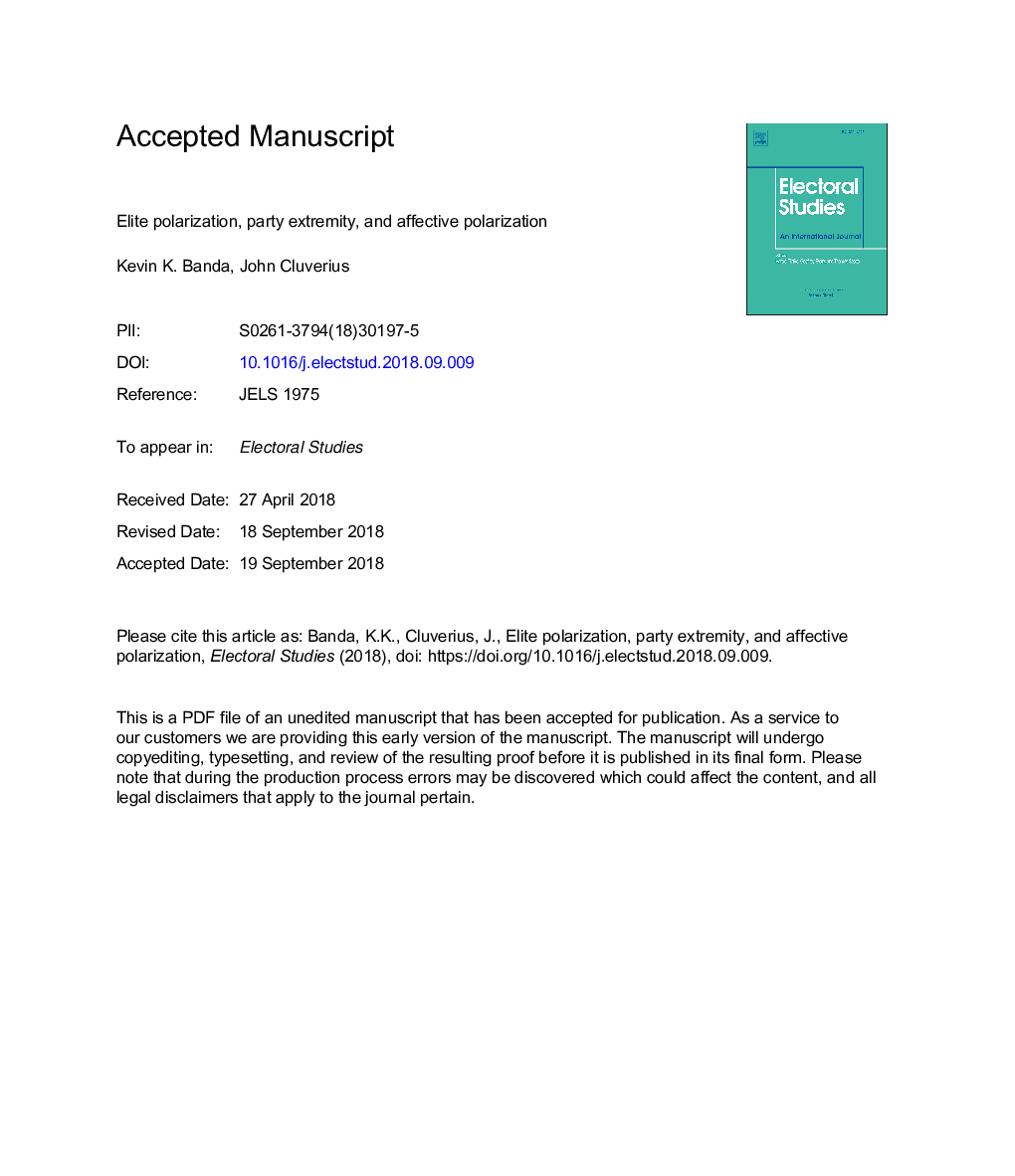| کد مقاله | کد نشریه | سال انتشار | مقاله انگلیسی | نسخه تمام متن |
|---|---|---|---|---|
| 11027539 | 1666264 | 2018 | 37 صفحه PDF | دانلود رایگان |
عنوان انگلیسی مقاله ISI
Elite polarization, party extremity, and affective polarization
ترجمه فارسی عنوان
قطبی شدن نخبگان، اندام های بدن و قطبش عاطفی
دانلود مقاله + سفارش ترجمه
دانلود مقاله ISI انگلیسی
رایگان برای ایرانیان
ترجمه چکیده
نخبگان در ایالات متحده در چند دهه گذشته به طور فزاینده ای قطبی شده اند. به تازگی، میزان این که طرفداران حزب مخالف را بیشتر منفی تر از خودشان می بینند - پدیده ای است که به نام "عاطفی" یا "قطبی شدن" اجتماعی - اجتماعی افزایش یافته است. قطبی شدن نخبگان چگونه قطبی شدن عاطفی را آشکار می کند؟ ما استدلال می کنیم که حزب به سطوح بالاتری از قطبش نخبگان با بیان سطوح بالاتری از قطبش عاطفی، یعنی ارزیابی های منفی نسبت به حزب مخالف نسبت به خودشان، پاسخ می دهد. استدلال انگیزه بیشتر طرفداران را تشویق می کند که حزب مخالف را بیش از خودشان سرزنش کنند. نتایج نظرسنجی هایی که از سال 1978 تا سال 2016 جمع آوری شده، حمایت بسیار خوبی از نظریه ما می کنند. ما بیشتر متوجه می شویم که افزایش سطوح منافع سیاسی، رابطه بین نخبه و قطبش عاطفی را افزایش می دهد. این نتایج پیامدهای مهمی برای سلامتی سیستم های دموکراتیک دارد که سطح بالایی از قطبیت نخبگان را تجربه می کند.
موضوعات مرتبط
علوم انسانی و اجتماعی
علوم اجتماعی
جغرافیا، برنامه ریزی و توسعه
چکیده انگلیسی
Elites in the U.S. have become increasingly polarized over the past several decades. More recently, the degree to which partisans view the opposing party more negatively than their own - a phenomenon called affective, or social, polarization - has increased. How does elite polarization inform affective polarization? We argue that partisans respond to increasing levels of elite polarization by expressing higher levels of affective polarization, i.e. more negative evaluations of the opposing party relative to their own. Motivated reasoning further encourages partisans to blame the opposing party more than their own. Results from surveys collected from 1978 through 2016 provide strong support for our theory. We further find that increasing levels of political interest magnify the relationship between elite and affective polarization. These results produce important implications for the health of democratic systems experiencing high levels of elite polarization.
ناشر
Database: Elsevier - ScienceDirect (ساینس دایرکت)
Journal: Electoral Studies - Volume 56, December 2018, Pages 90-101
Journal: Electoral Studies - Volume 56, December 2018, Pages 90-101
نویسندگان
Kevin K. Banda, John Cluverius,
